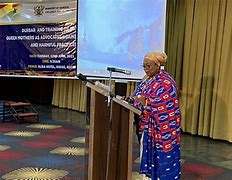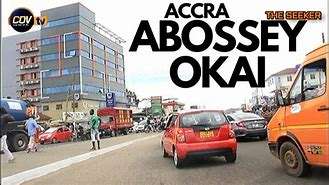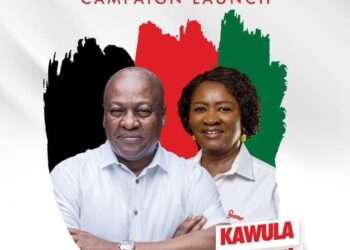Infrastructural development in Ghana’s Fourth Republic has significantly shaped the electoral terrain, presenting a double-edged sword that both enhances and challenges the democratic process. On the positive side, improved infrastructure, such as roads, bridges, and communication networks, has fostered greater accessibility, connecting remote regions and urban centers. This connectivity facilitates the dissemination of information, enabling a more informed electorate.
However, the uneven distribution of these infrastructural developments has generated disparities in accessibility, potentially skewing electoral outcomes. Regions benefiting from extensive improvements may experience increased political mobilization and participation, while those left behind face disenfranchisement.
Additionally, the construction boom accompanying infrastructural development can sometimes become a political tool. Government-led projects, especially in election cycles, may be strategically timed to influence voter sentiment, blurring the lines between genuine development and political maneuvering.
While infrastructural development enhances the overall socio-economic fabric, its impact on elections in Ghana’s Fourth Republic necessitates scrutiny.
The Queen Mother of the Osudoku Traditional Area, Nana Amponsah Dokua III, has issued a stern ultimatum, threatening a mass boycott of the 2024 elections if the longstanding issues of underdevelopment, particularly the poor state of roads in the Osudoku region, are not promptly addressed. Expressing profound frustration, Nana Amponsah Dokua III highlighted that despite years of active participation in the electoral process, the area has not witnessed significant developmental changes.

Adding a political dimension to her concerns, she criticized the National Democratic Congress (NDC) for what she perceives as its failure to deliver the much-needed development to the Osudoku area.
“Shai Osudoku is not happy, and the people, especially the traditional leaders, are sitting on a time bomb. Somebody will ask why nothing is happening in Shai Osudoku, and we have voted for the National Democratic Congress for so many years.”
Nana Amponsah Dokua III
She continued, “We have never changed from the NDC to any other party since 1992, but nothing is going on, and so we are warning that if they don’t take care, things will change.” The Queen Mother highlighted the deplorable state of the roads in Shai Osudoku, particularly in the traditional area, where not a single road is tarred. Her frustration and the perceived lack of progress have led to a bold declaration: either their concerns are addressed, or there will be a significant protest through election boycotts.
Meanwhile, spare parts dealers in Abossey Okai voiced their dissatisfaction with the government, expressing concerns about the adverse impact of newly implemented taxes on their businesses. Disillusioned by what they believed to be a business-friendly government, the New Patriotic Party (NPP), these dealers shared their disappointment over what they perceived as detrimental taxation measures affecting their livelihoods.

“The country and everything in it are messed up, and everything has changed, right down to the food we eat. Everything is being taxed, and we don’t see what the tax is being used for,” lamented one spare parts dealer. The sentiment among the dealers is one of economic strain, with rising costs affecting their ability to conduct business effectively. One dealer pointed out, “I am paying GH¢6,000 for a container, and a part I used to sell for GH¢5 is now GH¢20.”
Spare Parts Dealers
Reflecting on the development, another dealer expressed a desire for change;”Some two years ago, we were selling Toyota Vitz for GH¢35,000, but it is now selling for GH¢70,000, and the cost of spare parts has also shot up due to high import duties and the unstable exchange rates, and all we look forward to is voting this government out.”
The frustration and economic challenges faced by these spare parts dealers have fuelled a sentiment of anticipation for political change in the upcoming elections as they seek a government that can address their concerns and provide a stable business environment.





















